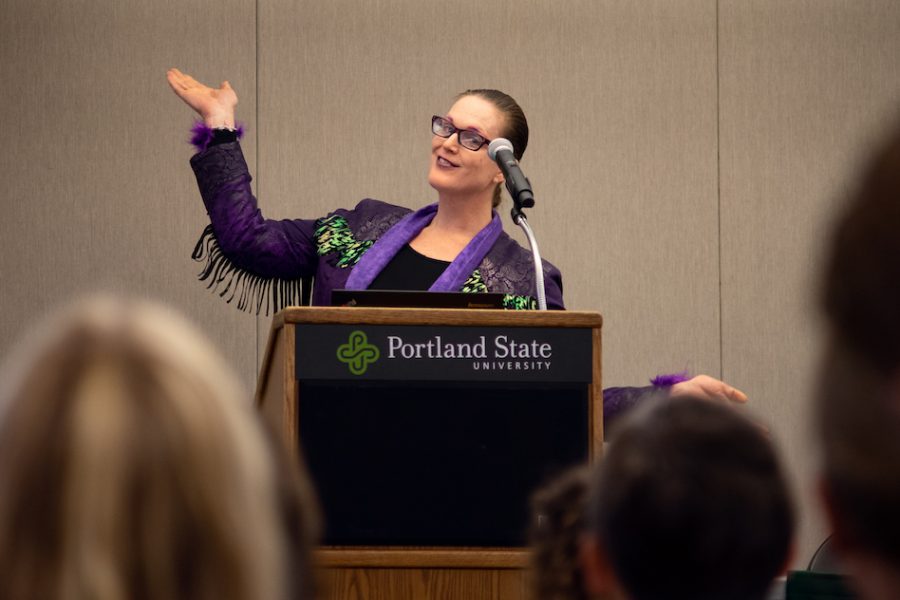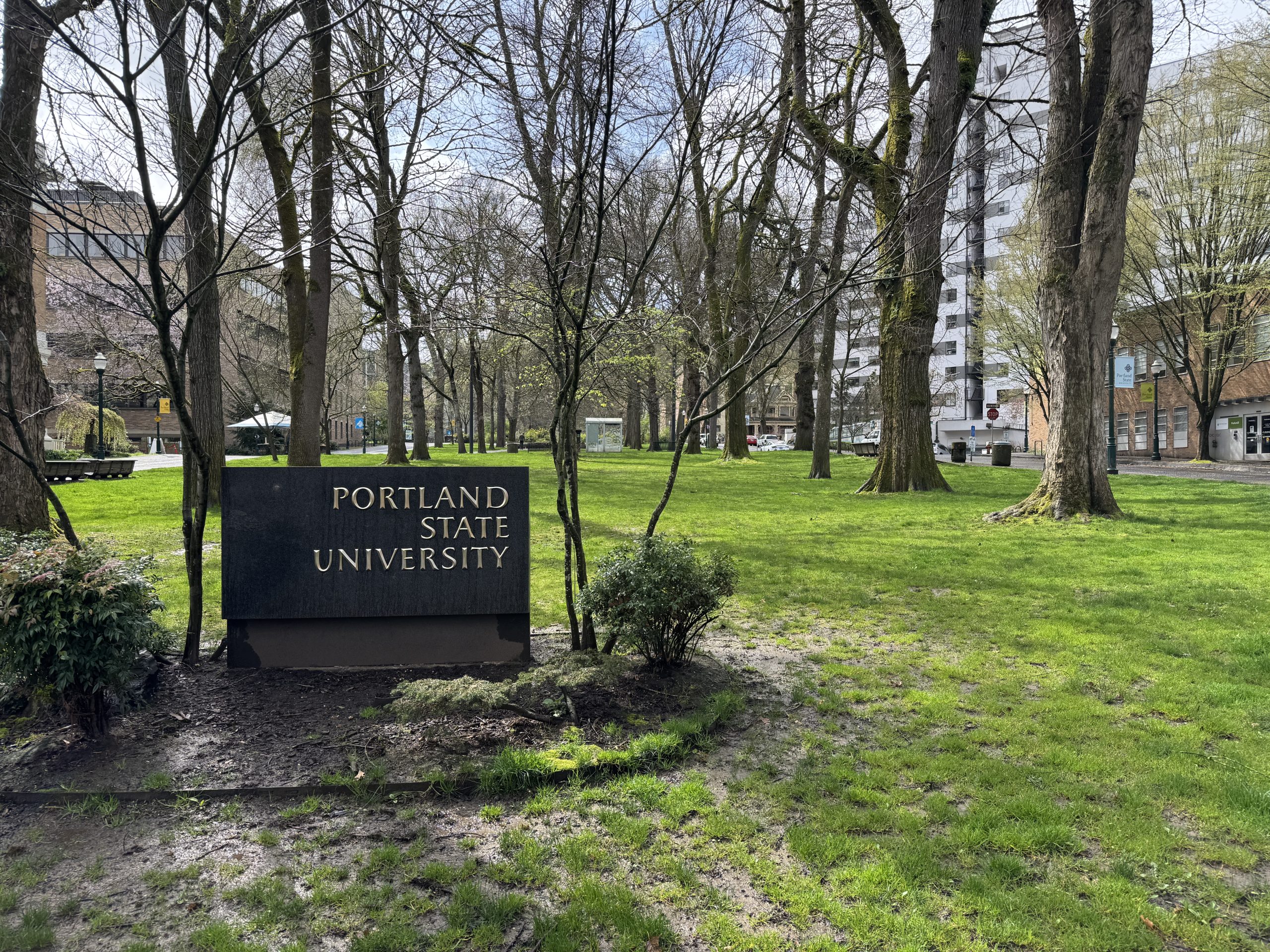A panel of experts discussed Oregon’s opioid crisis, including prescription drug abuse, addiction and dependency, as well as possible solutions through patient and public education.
The event held on Oct. 14 as part of the Portland State of Mind festival—titled “What Can Be Done About the Opioid Crisis”—consisted of experts from multiple fields to discuss both Oregon’s ongoing opioid epidemic and possible steps to solve it.

Oregon’s opioid epidemic
Panelists first discussed Oregon’s ongoing opioid epidemic, particularly prescription drug abuse.
Opioids, a class of drugs found naturally in the opium poppy plant, work in the brain to produce a variety of effects, including pain relief. Opioids include prescription pain relievers such as oxycodone and fentanyl and illicit drugs such as heroin.
“More than 1 billion pain pills have flooded the United States by drug makers since 2006, and Oregon ranks among the highest in the nation among prescription painkiller abuse, addiction and overdoses,” said PSU Interim President Stephen Percy in the events’ opening remarks.
In a recent national survey conducted by the Substance Abuse and Mental Health Services Administration, Oregon ranked second in the nation for non-medical use of painkillers such as prescription opioids.
“When you look at 15 different metrics of assessing our states’ mental health system—everything from access to support for services—we don’t rank well,” said Dr. James Polo, Medical Director of Regence BlueCross Blueshield of Oregon.
Panel members also discussed factors that contributed to the prevalence of this issue within the country. “I graduated from medical school in 2002,” said Dr. Amanda Risser, senior medical director of substance abuse disorders for Central City Concerns. “And when I was a resident, what we were taught was that opioids were the most effective treatment for chronic pain.”
“I’ve got the largest drug court in the state: We’ve got 180 [cases] on a given day,” said Eric Bloch, a Multnomah County circuit judge. “The majority of those folks are addicted to heroin now; and of that, the vast majority of those folks began their journey into opioid addiction through legal prescriptions.”
Possible solutions
To combat the opioid crisis, the panelists agreed that patient education is a potential way forward.
“I do think we are making headway,” Polo said. “At Regence [BlueCross Blueshield] we’ve spent a tremendous amount of effort working to educate providers, and we’ve created tools that patients can use to take into [see] their doctor to have a discussion about opiates.”
Alongside patient education, the panelists and audience members discussed ways Oregon as a community can begin to move forward in providing aid to those addicted to opiates.
One proposal was to create safe injection centers—a practice conducted in Europe and Australia, as well as other places around the globe. While there are no legal safe injection sites in operation within the U.S., there is significant advocacy to instate them.
Panel members also discussed ways to move forward in providing more access to care to those in need. “The people needing those services don’t get there—they don’t know about it, they’re not guided there. They’re not connected up in a comprehensive system,” Bloch said.
Bloch announced that the Alcohol and Drug Policy Commission has been meeting and working toward creating a state-wide, comprehensive plan to address the issue. He went on to say the plan will be put before state legislature in January 2019.
“The plan is essentially going to say, with respect to prevention, with respect to intervention, with respect to treatment and recovery, these are the things we should be measuring and monitoring to give direction to efforts going forward,” Bloch said.
Changing the narrative and stigmatization around opioid abuse was another roundly agreed-upon solution by members of the panel. Audience member Erik Kilgore, founder of Henry’s Uncle, a registered non-profit dedicated to aiding those experiencing addiction, weighed in, “What we’re trying to do is really to try and reduce the stigma and shame around addiction.”
“It’s wonderful that almost 100 people showed up—to take their night and come here and listen and collaborate—that’s a big thing,” Kilgore said.
Panel members included: Eric Bloch, a Multnomah County circuit judge; Dr. Amanda Risser, senior medical director of substance abuse disorders for Central City Concerns; Dr. James Polo, Medical Director of Regence BlueCross Blueshield of Oregon; and Morgan Godvin, a PSU Public Health student who added their own personal experience with addiction and recovery.






